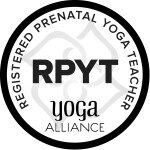- Everyone who wants to learn yoga is eligible.

Max Duration : 85Hrs
Course Fees : $1299 + $200
Who Should Attend
Duration Of The Course
Total Course Duration : 85 hours
Note: The below mentioned syllabus is full syllabus and once the entire syllabus is taught / done with field training and with completed formalities, then it means the course hours are completed already. Hours are not counted after completing every topic each time.
Most important is to complete the entire syllabus with exams, field training and with all formalities
Registration Fees $200
Course Fees $1299
- Registration and training fee is not transferable and non refundable under any circumstances.
- No bargaining in the fees.
- Maximum duration provided to attend classes and complete the course in all circumstances – 6 months
Registration fees charged by Union is not related to membership fees collected by Yoga Alliance registry or any member school for their registry which have to be paid to them after certification. Student after certification from Union have to register saperately by making saperate payment to them directly.
Course Content
Course Details
Course Schedule
Course Content
| Chapter No. | Topic | Max Hours |
|---|---|---|
| Classroom Theory | 20 | |
| UPPN101 | Trimester | 1 |
| UPPN102 | Why Practice Yoga When Pregnant | 1 |
| UPPN103 | Pelvis Anatomy | 1 |
| UPPN104 | Prenatal Development – Pelvis & Yoga Therapy | 1 |
| UPPN105 | Pregnancy – Fetal Development | 2 |
| UPPN106 | Pregnancy Complications | 1 |
| UPPN107 | Physiological Changes during Pregnancy | 1 |
| UPPN108 | General Background in this Specialty Area | 1 |
| UPPN109 | Antenatal Care | 1 |
| UPPN110 | Yoga Philosophy Ethics for Yoga Teacher | 1 |
| UPPN111 | Diet & Nutrition for Pregnancy | 1 |
| UPPN112 | Postnatal Care in Theory | 1 |
| UPPN113 | Asana for Pelvic Area in Theory | 1 |
| UPPN114 | First Trimester Practices in Theory | 1 |
| UPPN115 | Second Trimester Practices in Theory | 1 |
| UPPN116 | Third Trimester Practices in Theory | 1 |
| UPPN117 | Sequences for Common Problems in Pregnancy in Theory | 1 |
| UPPN118 | Pranayama in Theory | 1 |
| UPPN119 | Dads and Partners | 1 |
| Classroom Practical | 30 | |
| UPPN120 | Sthiti and Sithila Postures | 1 |
| UPPN121 | Sakti Vikasaka Suksma Vyayama | 1 |
| UPPN122 | Breathing Practices | 1 |
| UPPN123 | Sithilikarana Vyayama | 1 |
| UPPN124 | Yogasanas | 1 |
| UPPN109 | Antenatal Care | |
| a) | Standing Postures | 1 |
| b) | Sitting Postures | 1 |
| c) | Supine Postures | 1 |
| UPPN125 | Relaxation Techniques | 2 |
| UPPN126 | Pranayama in Practical | 2 |
| UPPN127 | Meditation | 2 |
| UPPN128 | Mudra | 1 |
| UPPN129 | Kriya | |
| a) | Trataka (Practical) | 1 |
| UPPN130 | General Prenatal Yoga Class Practice | 15 |
| UPPN131 | Field Training | 30 |
| UPPN132 | Report Writing | 5 |
| Total Hours | 85 |
Course Details
Union Yoga Ayurveda conducts yoga courses for people of all ages and walks of life, to maintain a healthy lifestyle.
Prenatal Yoga Teacher Training Course is conducted for those who wish to become certified Prenatal Yoga Teachers which equip them with the skills and qualifications to teach women who are pregnant (Prenatal), and/or have delivered (Postnatal). This course is affiliated to the Yoga Alliance of USA and students can register themselves as Registered Prenatal Yoga Teacher (RPYT) upon graduation as a worldwide recognised prenatal yoga teacher.
This is also suitable for expectant mothers or anyone who are interested to learn more on pre and post natal yoga, and how yoga can enable pregnant women to enjoy their pregnancy and prepare them for birth. Prenatal yoga focuses on the slow gentle flow of movement and connection with the breath and baby. The yoga postures are simple and easy, which help to promote general physical and emotional well-being. No previous experience with yoga is required.
This training course guides through the basics of prenatal yoga practice, which helps nurture and strengthen the body to cope with the changes of pregnancy, focuses on postures that are specifically designed for pregnant women’s bodies and maximise the benefits of yoga for them.
The attractions for the syllabus includes-
- Introduction to Pre Post-Natal Yoga therapy
- Yoga, diet, regime as a part of lifestyle
- Stress management through Yoga
- Therapeutic techniques of yoga therapy focusing on conditions like – pregnancy, prenatal, postnatal etc.
- Yoga and its application in pregnancy induced complications like – PIH, PID etc.
Detailed Syllabus
UPPN101: Trimester learns about the different trimesters and weeks in pregnancy.
UPPN102: Why Practice Yoga during Pregnancy shares the benefits of practicing yoga and the positive changes it brings to the pregnant women physically, emotionally and mentally.
UPPN103: Pelvis Anatomy introduces the anatomical features and structure of both the male and female reproductive system.
UPPN104: Pelvis & Yoga Therapy explains the Integrated Approach of Yoga Therapy for Pregnancy which comprises the concept of Pancakosa and yoga practices for each kosa.
UPPN105: Fetal Development during the whole course of pregnancy, from the time of conception, implantation, formation of cells, tissues, development of fetal life support systems, to the growth of fetus are included in this topic. Weeks by weeks development of the fetus are explained and also the application of yoga practices in accordance.
UPPN106: Pregnancy Complications can be easily prevented by early recognition and management. The complications include Pregnancy-Induced Diabetes (PID), Pregnancy-Induced Hypertension (PIH), Preeclampsia, and Intra-Uterine Growth Retardation (IUGR) etc.
UPPN107: Physiological Changes during Pregnancy explains the functional and structural alterations develop in the body during the course of pregnancy and delivery. The pregnancy-induced changes take place in parts of the body like cardio-vascular system, respiratory system, gastro-intestinal system, metabolism, uterus and breasts etc. This topic also explains the important hormonal changes in pregnancy.
UPPN108: General Background in this Specialty Area explains the role of healthcare professionals and the role of prenatal yoga teachers.
UPPN109: Antenatal Care aims to ensure the well-being of mother and child, by screening, prevention and management of maternal or fetal problems, and the preparation of the pregnant women and their spouses for childbirth and child rearing.
UPPN110: Yoga Philosophy Ethics is important to every yoga teacher and individual as it explains the concept of Patanjali’s 8 Limbs of Yoga and guides us in the yogic way.
UPPN111: Diet and Nutrition is important in Pregnancy as a dynamic life is being nourished within the body of the pregnant woman. The various concepts of diet and nutrition are introduced in this topic, to ensure that every pregnant woman will be guided on a healthy and balanced diet, with essential nutrients that supply energy, protect against infection and disease, help build and repair tissues and organs, and help in the proper functioning of all systems of both mother and fetus.
UPPN112: Postnatal Care is as important as prenatal care. In this theory topic, puerperium or postpartum care is explained and the yoga practices which can be done for both natural and cesarean delivery are included.
UPPN113: Asana for the Pelvic Area is a theory topic that includes the yoga postures that can be practiced physically during pregnancy that target the pelvic area. These help to prepare the pregnant women for birth by widening their pelvic area, improving blood circulation and also stimulate the ovaries and stabilizes hormone production.
UPPN114: First Trimester Practices which are introduced in this theory topic helps pregnant women adjust to changing hormones and energy during an often intense and delicate period of transformation. Yoga postures that are more grounded enable them to slow down and focus within their body, so as to create a favorable environment for the baby to grow.
UPPN115: Second Trimester Practices in this theory topic focus on cultivating strength and stamina for the pregnant women, and to refine awareness of their pelvis and spine. The practices also help to build more internal support so as to ease the pregnant women as the baby grows bigger and heavier.
UPPN116: Third Trimester Practices in this theory topic shows examples of yoga postures, pranayama and relaxation practices that focus on cultivating energy, postural alignment to give support to the spine, and the use of various props like bolsters and chairs etc.
UPPN117: Sequences for Common Problems in Pregnancy is a theory topic that explains the common problems like prematurely dilated cervix, dizziness, fatigue, headache, tension, heartburn, shortness of breath, back pain, high blood pressure and diabetes, and shows examples of yoga postures and sequences for these problems.
UPPN118: Pranayama in Theory teaches the concept of Pranayama according to Hatha Yoga, Bhagavad Gita and Patanjali. It also explains the relationship of breath, prana and the mind.
UPPN119: Dads and Partners discusses the roles and responsibilities that Dads and Partners play during pregnancy.
UPPN120: Sthiti (Initial) and Sithila (Relaxation) Postures in Tadasana, Dandasana and Savasana etc. designed to help pregnant women to attain balance and stability before going into postures, and also to relax after coming out of postures.
UPPN121: Sakti Vikasaka Suksma Vyayama refers to small exercises to loosen and strengthen various parts of the body like fingers, wrists, shoulders, hips, knees, ankles and toes etc.
UPPN122: Breathing Practices are important to get the pregnant women prepared for further practices. Some of the breathing practices include hands in and out breathing, hands stretch breathing, tiger breathing and neck loosening with breathing.
UPPN123: Sithilikarana Vyayama refers to loosening practices which help to loosen the various joints in the body and flex the spine by repeatedly stretching and relaxing different muscles. It also helps to develop the stamina of the body and discipline the body-mind complex.
UPPN124: Yogasanas are modified for the pregnant women in accordance to their trimesters. They include standing postures like Ardhakati Cakrasana and Hasta Padasana, sitting postures like Vajrasana, Ardha Matsyendrasana, Baddha Konasana, Upavista Konasana, Malasana, Sasankasana and Siddhayoni, and supine postures like Viparita Karani, Savasana and Matsya Kridasana.
UPPN125: Relaxation Techniques for prenatal like instant relaxation technique, quick relaxation technique, deep relaxation technique and yoga nidra, are important techniques which help pregnant women be able to rest, relieve tension, anxiety and relax completely. This benefits both mother and baby.
UPPN126: Pranayama is more than simple breathing exercises and it must be practised systematically and under proper guidance. It is also called yogic breathing which harmonizes the flow of prana within. In the practical session, pranayama like sectional breathing, nadisuddhi, cooling pranayama and bhramari are practiced in the prenatal way. Pranayama is emphasized in the delivery room, where the harmonization of breath, body and mind enables the link to the rhythm of breath with contractions of the uterus, which control the labour and maintain awareness throughout.
UPPN127: Meditation, which is the 7th limb of Ashtanga yoga, calms the mind to release stresses at the mental level. This process involves reducing the speed and number of thoughts in the mind. The meditation which is practiced in pregnancy includes Nadanusandhana and OM-meditation.
UPPN128: Mudra is a specific body position, which channelizes the energy produced by asana and pranayama into the various centers, and arouses particular states of mind. Some mudras that are used in meditation during pregnancy are Asvini Mudra and Sanmukhi Mudra.
UPPN129: Kriyas are yogic processes to cleanse the inner organs of the body, which helps to activate and revitalize the organs and develop deep internal awareness. The kriyas during pregnancy include Trataka and Vamana Dhouti. Practical sessions will be conducted to explain and guide through the full process of Trataka.
UPPN130: In General Prenatal Yoga Practice classes, there will be hands-on sessions to learn how to give instructions on the yogasanas and modify them in accordance to trimester and the common problems. Common variations are also included. Learning the general principles in giving physical cues and adjustments, the tone of voice and language in the class, the Dos and Don’ts during the class, use of various props and sequencing.
UPPN131-UPPN132: All students are required to complete their Field Training which consists of teaching pregnant women of different trimesters and common problems. Students are required to apply their knowledge into lesson planning, photos and videos for their submission to get their certification.
Course Schedule
Courses and Classes Start From Morning 10:00am to Night 10:00pm.
We Run Three Batches –
- Weekdays Day Time – After 10:00am and Before 4:00pm.
- Evening Time – After 7.30pm till 10:00pm
- Weekends – After 10:00am and Before 4:00pm
We Run Three Batches –
WEEKDAYS (Mon, Tues, Wed 9am to 12 noon) Batch – Jan- 7th, Feb-4th, Mar-4th, April-8th, May-6th, June-3rd, July- 8th, Aug-5th, Sept-9th, Oct-7th, Nov-4th, Dec-9th
WEEK EVENING (Mon, Tues, Wed 7.30pm to 10pm) Batch – Jan-7th, Feb-4th, Mar-4th, April-8th, May-6th, June-3rd, July-8th, Aug-5th, Sept-9th, Oct-7th, Nov-4th, Dec-9th
WEEKENDS (Sat, Sun 11am to 4pm) Batch – Jan-12th, Feb-9th, Mar-9th, April-13th, May-11th, June-8th, July-13th, Aug- 10th, Sept-7th, Oct-12th, Nov-9th, Dec-14th
For Specific Time Schedule of Each Course and Batches, Please Email To
- UNIONYOGAAYURVEDA@GMAIL.COM
- OR SMS/WHATSAPP/CALL: (+65) 8321 6170 / 8133 7608
Faculties
Course Principal & Director
Bachelor in Ayurvedic Medicine & Surgery (BAMS)
Doctor of Medicine (MD)-Yoga & Rehabilitation
Aroma Therapist
Certificate in Ayurveda Principles (CAP)
Senior Yoga Therapist
Diploma in Yoga Therapy (DYT)
Ayurveda and Yoga Therapy Teacher / Therapist and Trainer
RYT 500, E-RYT200, Senior Yoga Teacher and Trainer
Bachelor in Ayurvedic Medicine & Surgery (BAMS)
Yoga Instructor Course (YIC)
Senior Yoga teacher 200hrs
and Ayurveda principle educator
Master in Science of Yoga,
Registered Yoga Teacher
Ayurveda Foundation Teacher / Therapist and Trainer
Yoga Trainer and Teacher
Master in Science of Yoga,
Registered Yoga Teacher
Yoga Teacher & Trainer
Senior Yoga Teacher, Trainer and Therapist
Senior Yoga teacher, Trainer and Therapist
Pay Online
ACCOUNT NAME- UNION CENTRE PTE LTD
Type of Account- Current Account.
Account number- 641873716001.
Bank name- Overseas Chinese banking corporation (OCBC)
Branch code- 641
Bank code- 7339
Swift code- OCBCSGSG
PayNow ID- Union Centre 201220843G

Cheques in the name of UNION CENTRE PTE LTD, payable at Singapore.
ACCOUNT NAME- UNION WELLNESS PTE LTD
Type of Account- Current Account.
Account number- 1989003670.
Bank name- Development Bank of Singapore (DBS)
Branch code- 198
Bank code- 7171
Swift code- DBSSSGSG
PayNow ID- Union Wellness 201426655W001

Cheques in the name of UNION WELLNESS PTE LTD, payable at Singapore.
Fixed a Date for Exam Details
- Plan for completion of course and exam well in advance. Absence in classes or missing the lessons is solely the responsibility of student.
- Booking exam date needs 30 days in advance.
- If 30 days of booking the exam exceeds the max time limit of course, then school is not responsible. Student have to plan their course keeping last 30 days of exam in advance.
- One time fixing a date of exam is FREE because it’s been added in registeration fees paid during starting of course.
- Any change in date after first fixing of date will add extra cost of $125 each for theory and $125 for Practical.
- Death of near and dear ones, Medical emergency with proof, Natural calamity are exceptions.
- Recording and Submission of Video
For students safety, the video has to be recorded on a device brought by student and she/he has to upload the link on Google drive and have to share to Unionyogaayurveda@gmail.com and mysilentyogi@gmail.com within 5 working days.
- Additionally, the student has to submit a copy of video by using flash drive to exam centre under supervision of internal examiner within 5 working days.
- Late submission will be considered as exam cancelled and later have to start the process from first step of booking the exam.
Evaluation
- 50% of marks from Internal examiner.
- 50% of marks from external examiner.
- Both are added to make final marks. In short, average of internal and external examination is final marks or final grade.
- Evaluation is done based on your clear instructions, corrections, questions and answers, usage of sanskrit terms and correct english names with indication, contraindications with subtle points mentioned in Yellow practical book.
- The expectation of knowledge while evaluation from Internal and external examiner may vary because of which there can be difference in marks and final grades also dependent on average of marks given by internal and external examiners.
Grades
- Students who are unsatisfied by lower grades can ask for recounting and re-evaluation by another examiner by giving official request and payment of fees:~Re-evaluation $125 for theory and $125 for Practical.~Re-Counting $75 for theory and $75 for Practical.
- Recounting or Re-evaluation and payment of fees doesn’t means the grades will go higher. It’s a evaluation or counting done by another examiner which may result to increase or decrease or no change in grades. This requires max extra 30 days from the date of application of re-evaluation or recounting.
